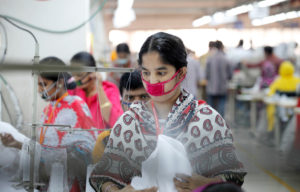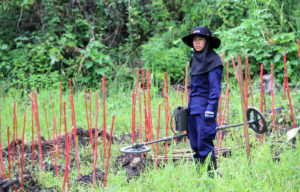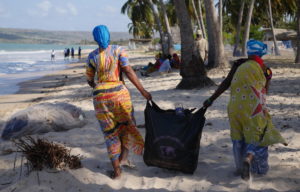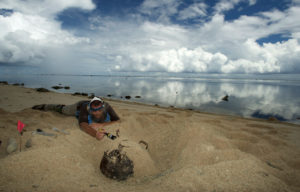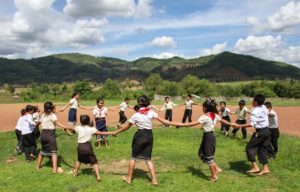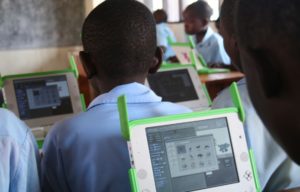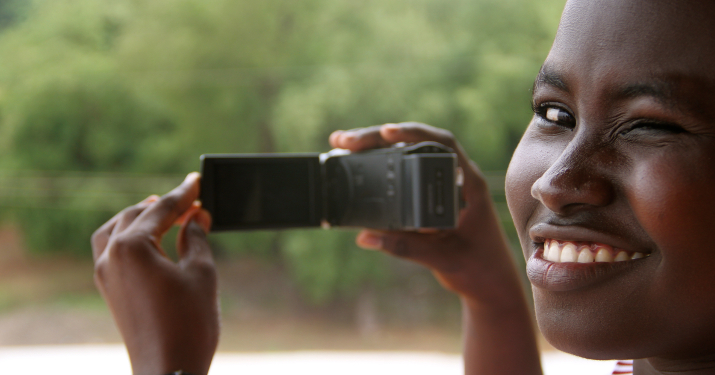
Photo: Freja Mangs
Girls in Ghana look to the future
In Northern Ghana, confidence building workshops give girls the self-esteem they need for higher education.
Share
Ghana moving up
The small African country of Ghana gained independence in 1957, after decades under colonial rule. Since then, the country has worked on reducing poverty, which has resulted in a drop in extreme poverty, from 51 percent in 1991 to 29 percent in 2005, according to Ghana Statistical Service and the World Bank.
This economic development has not been equally distributed in the country. Industrialisation and development have happened fastest in the capital of Accra in the South, while poverty is notable higher in the Northern regions, where the economy mostly depends on agriculture – even though the soil is less fertile than in the South. The lack of stability and economic development in the North impacts the country’s youth, as the education system is not as developed as in the South.
The inequality between the Northern and Southern regions has been a source for debate in Ghanese media, and the increased focus has had a positive effect. The government has urged companies and development organizations to focus on the North. The call has been heard and the work is now starting to have an effect.
Other categories
Region: Africa
Theme: Children & Youth, Women’s Rights
In Ghana, most children are enrolled in school, and poverty levels are dropping. However, girls are still not a priority in the educational system, especially in the poorer northern part of Ghana.
This is why the Danish development NGO ‘100% to the Children’, together with the Ghanesian organization REEP (Rural Education for Empowerment Programme), support vulnerable girls in rural Northern Ghana to get an education, as a sustainable way out of poverty.
A part of that work takes place in workshops where the girls have to stand up and speak in front of an audience, delivering their message loud and clear. This has strengthened the girls to stand in front of their schools. One of the girls, Atiyah Hawa, explains how she’s now in charge of entertainment and cultural events at her school.
“We have worked on standing in front of audiences and speaking up about our ideas, and we’ve written songs and performed for each other. It’s great, and I find it very useful”, she says.
Confidence supports school success
The work has had a significant effect, according to Abdul-Fatawu Abukari, the leader and coordinator for REEP efforts in the northern parts of Ghana.
“The girls are a lot more enthusiastic and have much more self-esteem. Seven girls ran at the last student elections in their local schools, and five of them were elected. It shows us the positive and sustainable effect that the workshops, the training, and the focus they have gained have had on the girls. Firstly, more youths stay in the northern parts of Ghana, and don’t seek out better opportunities in the South. And in addition to that, there is also a significant personal development benefit for the young people”, Abdul-Fatawu Abukari says.
Fuseini Sherifatu, another girl who has been a part of REEP in several years, explains what the programme has done for her.
“I have gained a lot of confidence, because I’ve worked on speaking to large gatherings, and I’ve become good at it. It has also helped develop my academic skills. I would like to be even better at delivering speeches”, she says.
A central part of the project is to let the girls see the opportunities in their future and to dare chase them. Research done in autumn 2014 done by 100% for the Children shows that a large majority of the girls in the self-improvement workshops want to keep studying after high school.
The research also shows that the girls have few or no family members with an education. That’s why REEP has included the girls’ parents in the project and taught them about the importance and opportunities of education. This creates balance between life at home, school and REEP workshops in a way that makes it possible for the girls to follow their dreams.
The heightened attention and support for education has paid off and has made the girls choose new directions in life. The future for the youth in Northern Ghana has become a bit brighter.
